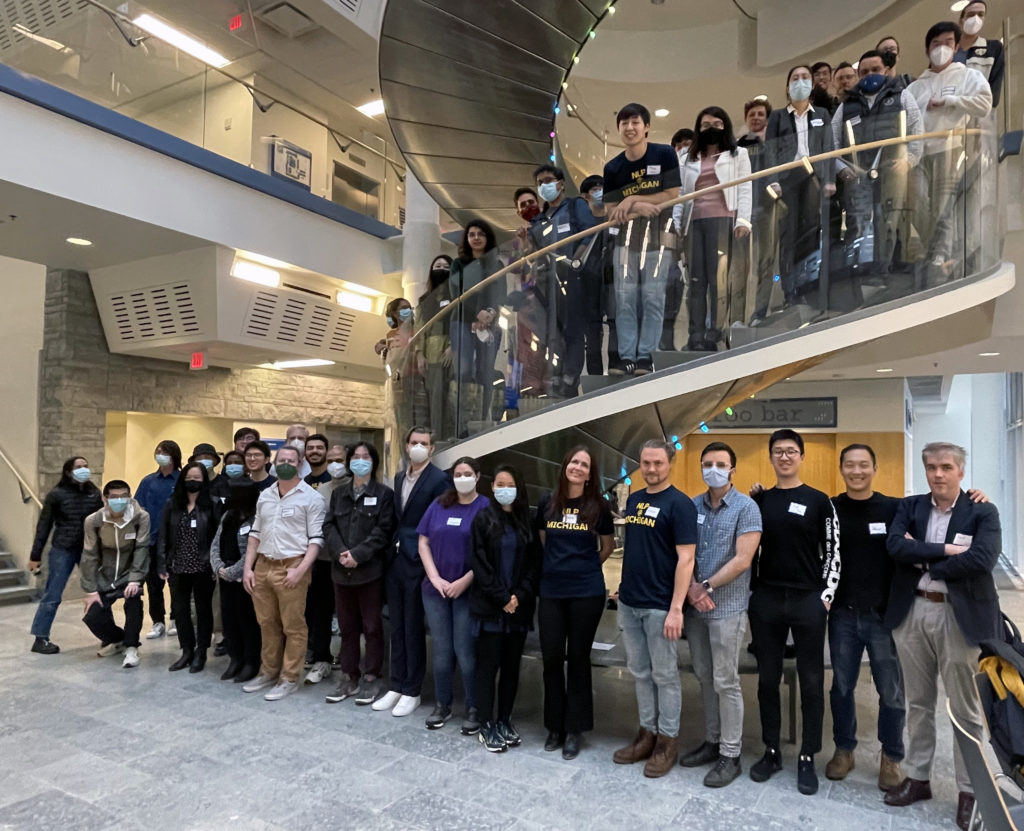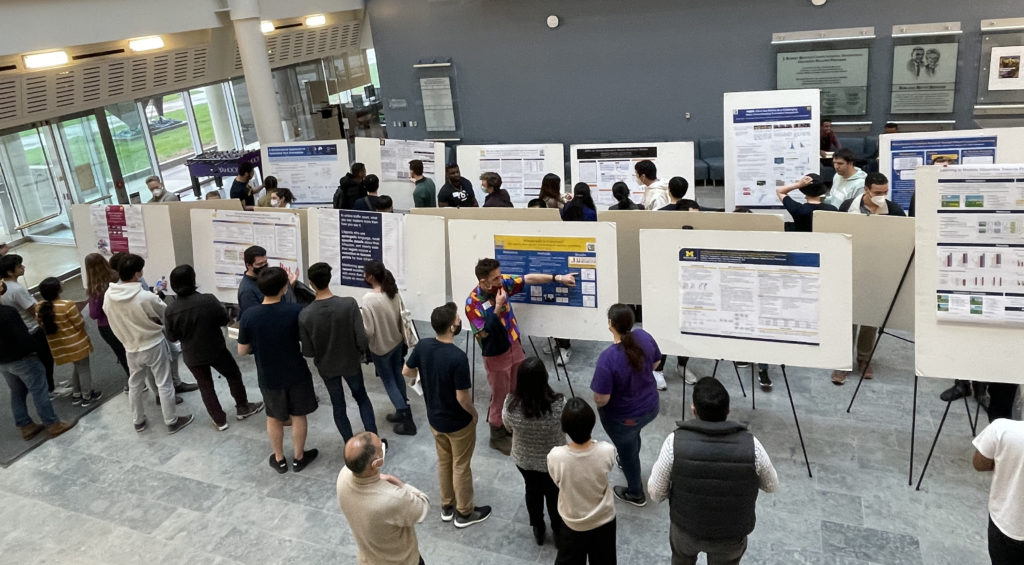Natural Language Processing at Michigan Research Day

Eighty U-M researchers gathered on North Campus in the Bob and Betty Beyster Building on May 3, 2022 for NLP@Michigan Day to exchange insights into the use of natural language processing (NLP).
NLP is a branch of artificial intelligence concerned with giving computers the ability to understand text and spoken words in much the same way as human beings can.
Organized by Winston Wu, a postdoctoral research fellow in Computer Science and Engineering; Minje Choi, a PhD student in the School of Information; Aurelia Bunescu, CSE Research Area Specialist; Rada Mihalcea, Janice M. Jenkins Collegiate Professor of Computer Science and Engineering; and David Jurgens, assistant professor of the School of information, the meetup was intended to foster connections between researchers across campus with an interest in the development and application of NLP. Participants attended from a number of disciplines, including computer and information science, linguistics, law studies, health science, education, and psychology.
The symposium included a keynote by associate professor Jonathan Brennan of the Department of Linguistics in the College of LSA, who spoke on “Big data needs big theory to understand understanding.” Brennan studies the mental structures and computations used to understand words and sentences, with a focus on how these processes are implemented in the brain.
Following the keynote was a poster session with over 20 posters from research groups across U-M. Three PhD students, Santiago Castro, Muhammad Khalifa, and Shane Storks, won best poster awards for their work on video understanding, text generation, and commonsense reasoning, respectively.

Concluding the sessions were roundtable discussions on culture-aware NLP, health and NLP, vision and NLP, pragmatic language communication in embodied AI, language resources and data, large language models, and NLP and computational social science.

 MENU
MENU 
